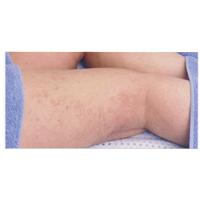
London: The British Acupuncture Council (BAcC) has welcomed the preliminary results of a recent international study published today in the British Medical Journal which found that acupuncture given with embryo transfer can improve rates of pregnancy by 65% in women undergoing in vitro fertilisation (IVF).
Head of the British Acupuncture Council Research Committee, Professor Nicky Robinson said: The recent systematic review and meta-analysis of 7 trials, involved 1,336 women undergoing IVF.
This study suggests that when acupuncture given in conjunction with embryo transfer increases the chance of women becoming pregnant by 65%, in comparison to sham acupuncture or no additional treatment. What this means is that 10 women would need to be treated with acupuncture to bring about one additional pregnancy.
It confirms what many of our practitioners and their patients have found, namely that acupuncture can be helpful in this area.
At the BAcC, we recognise that our practitioners are treating more and more women for a wide range of fertility issues, including menstrual irregularities and the inability to conceive and our research committee has a comprehensive research study underway, analysing the members practice of fertility related conditions.
The researchers at the University of Maryland School of Medicine and VU University Amsterdam set out to determine whether acupuncture given with embryo transfer improves the rates of pregnancy and live birth among women undergoing IVF.
Acupuncture is a form of oriental therapy and fertility focused acupuncture treatment can help to increase blood flow to the reproductive organs, balance hormone levels, regulate the menstrual cycle and help improve the lining of the uterus and quality of eggs released.
Acupuncture is thought to aid fertility treatments by being able to:
* regulate the menstrual cycle and promote regular ovulation
* regulate the hormones to produce a larger number of follicles
* improve the functions of ovaries to produce better quality eggs
* enhance the vitality of sperm
* relieve the side effects of drugs used in IVF
* increase the thickness of the uterine lining so to encourage successful implantation.
As with all health care treatments, its important to find a registered and qualified practitioner. To find a practitioner in your area call the British Acupuncture Council on T: + 44 (0) 20 8735 0400 or visit www.acupuncture.org.uk
About the BAcC:
The British Acupuncture Council (BAcC) has a membership of over 2,800 professionally qualified acupuncturists. It is the UK’s largest professional body for the practice of acupuncture.
BAcC members practise a traditional, holistic style of acupuncture diagnosis and treatment based on a system developed and refined over 2,000 years. To achieve BAcC membership, practitioners must first undertake extensive training in traditional acupuncture (minimum three years full-time or part-time equivalent), which includes physiology, anatomy and other biomedical sciences appropriate to the practice of acupuncture.

